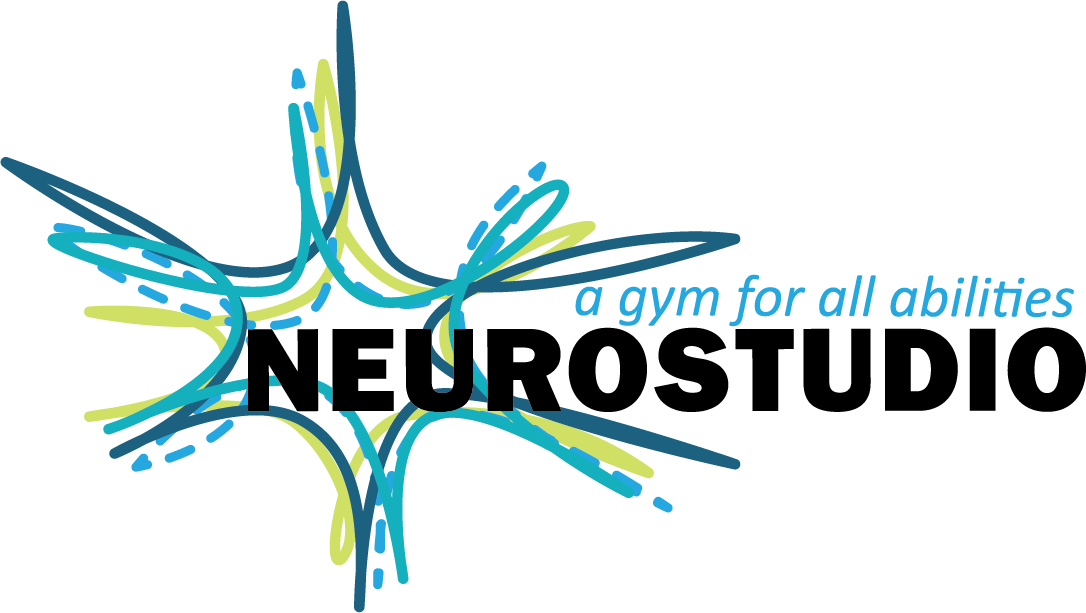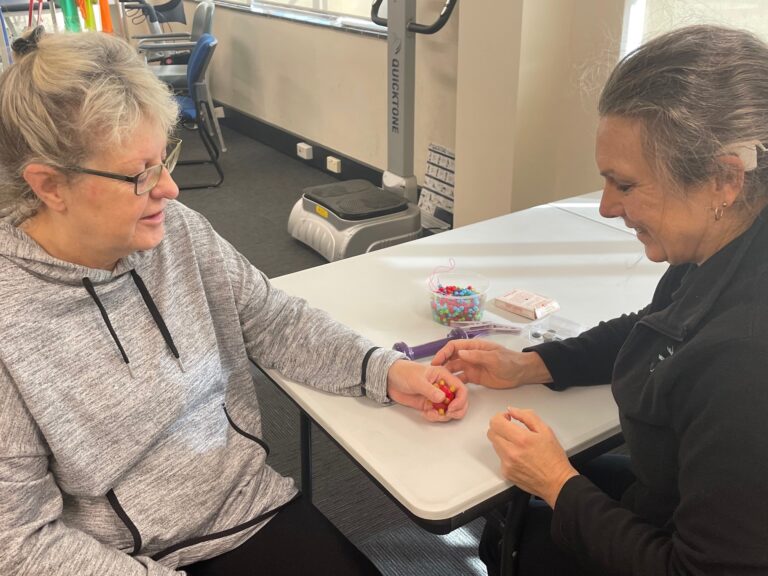
A small or large bleed on the brain may result in significant movement changes. The recovery from stroke continues for a lifetime. If the nervous system is altered from a stroke, there will be the initial compensations and then recovery of the nervous system to replace or regenerate what was damaged. The whole body system will continue to change with the activity we do after the stroke. If there is positive information and learning going into the brain, there will be changes for the better. If there is nothing or inappropriate learning going into the system, there will be deterioration (weakness, contracture, less capacity and participation in activities).
At Neurospace we work with you to optimize the function of the nervous system, restore strength and control and minimize contracture. We retrain movements affected by the stroke to allow maximum participation in everyday activities.
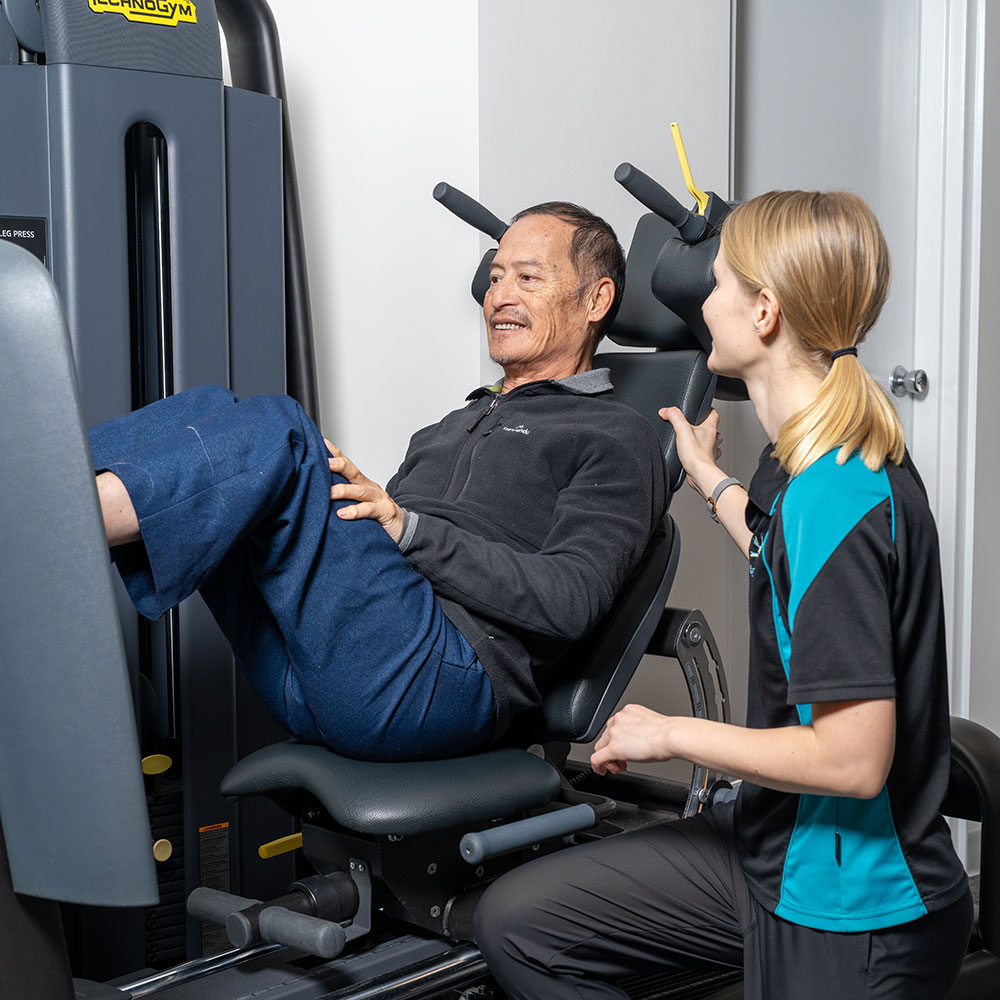
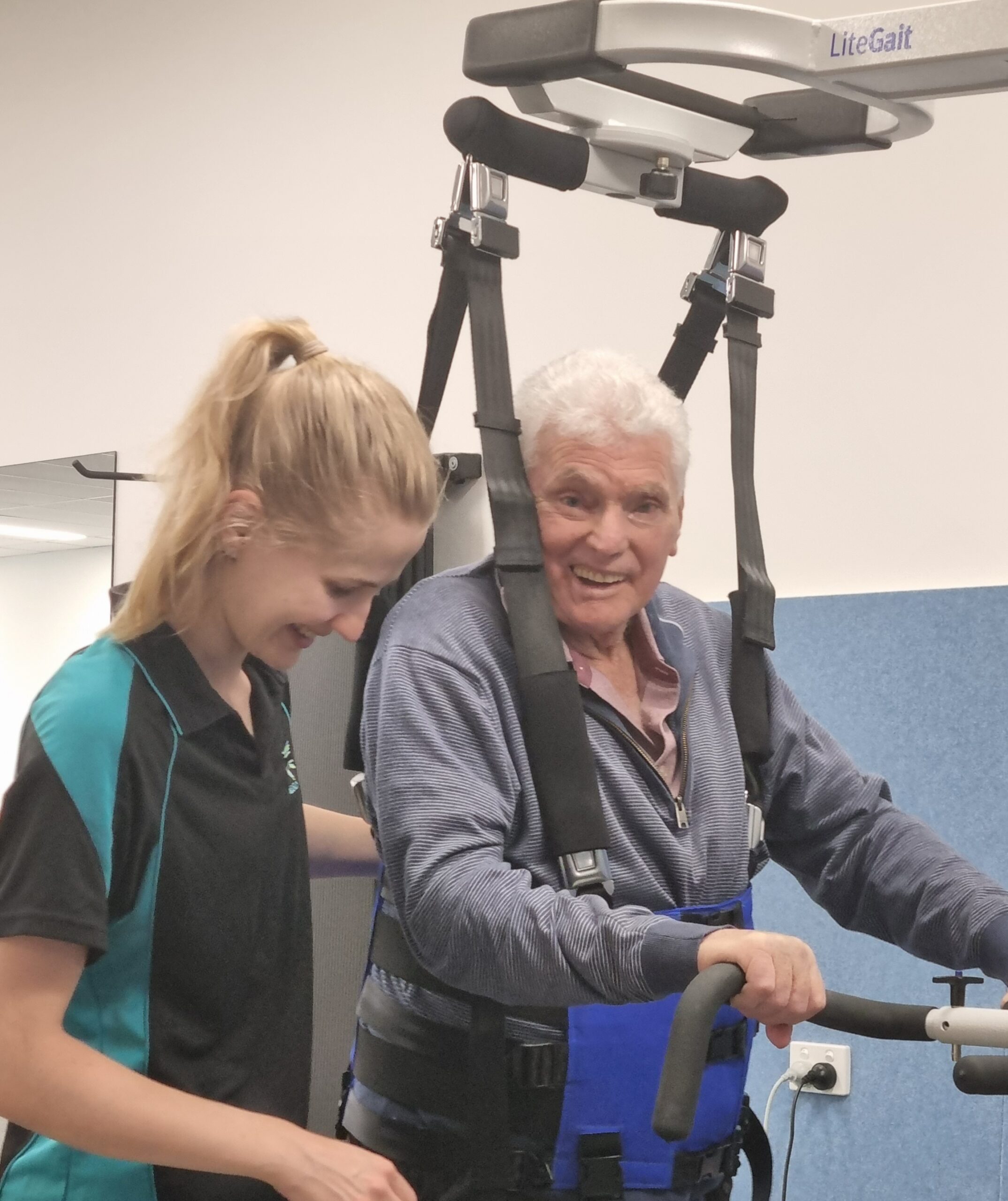
Traumatic Brain Injury occurs when brain injury is acquired with trauma, most commonly associated with car accidents and falls.There is also increasing evidence of the impact of blows to the head in sport causing concussion and potential long term effects from this known as Post-Concussion Syndrome (PCS).
Traumatic Brain Injury may result in widespread brain damage, affecting different areas of the brain which add to the complexity of movement changes after TBI. Movement retraining and exercise is important for the initial and long-term management to maximise recovery and improve health and wellbeing of people living with a brain injury. In particular, with PCS the metabolic changes in the brain, mean the exercises and management need to be precise to maximise the timeliness of the recovery.
At Neurospace we offer specific assessment and management for concussion injuries, and programs for ongoing rehabilitation with Traumatic Brain Injury.
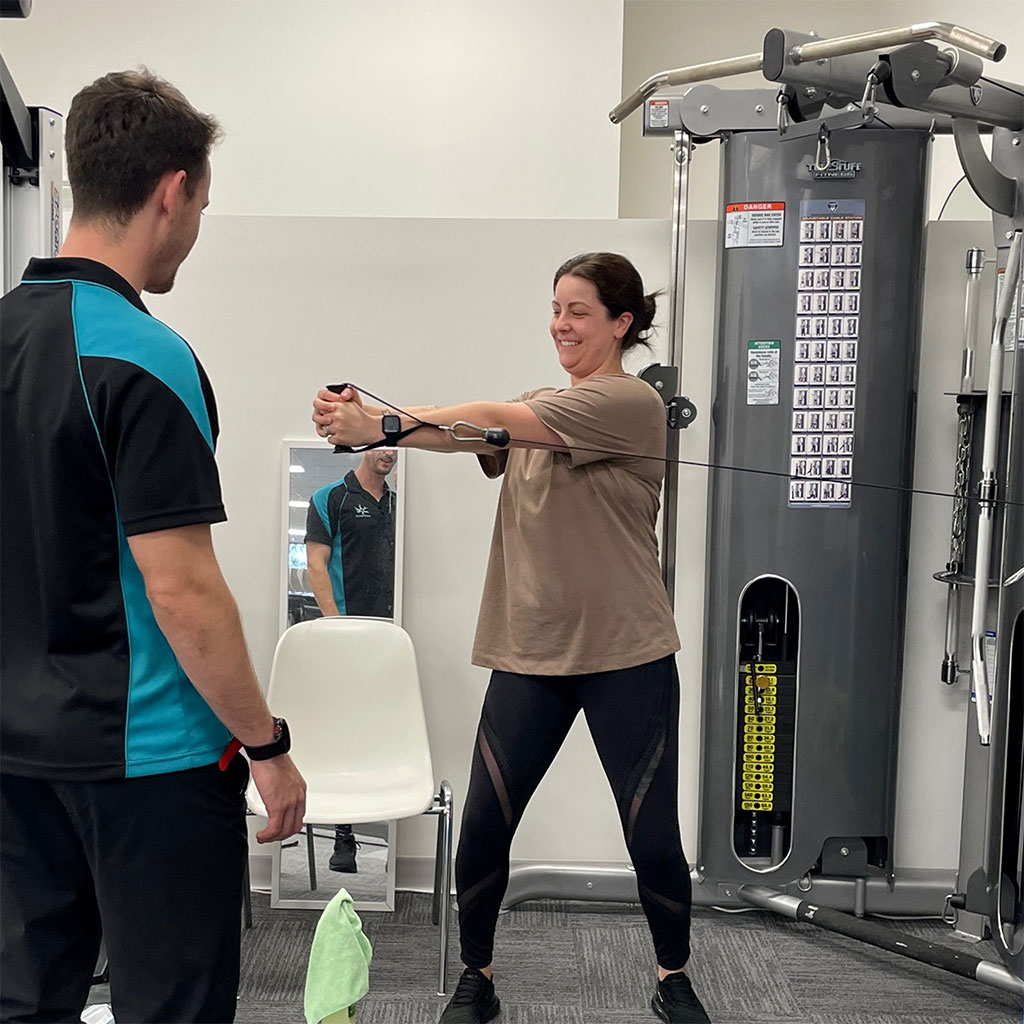
MS in an autoimmune disorder where the protective layer around the nerves (Schwann cells) is damaged with a secondary effect of causing the nerves to slow down conduction and progressively lead to degeneration of the nerves themselves. Any nerves can be damaged in the limbs, the spinal cord or the brain. Each person will present with a different combination of symptoms and will have individual life stage to consider.
A huge amount of research has gone into the management of MS to minimize the inflammatory response and maximize function. Exercise is a very important part of the management process, and it needs to be done in the right way and with support to monitor changes over time. Neurospace bases programs around the MS Get a Head Start program, and has progressed this into our MS Go class for ongoing support.
Support is also given to manage concurrent symptoms such as fatigue, spasms, finding equipment if required.
Parkinson’s disease is well recognized from the tremor in movements, stooped posture and shuffling gait. There are also a range of other physical and non-physical symptoms that will impact on the way therapy is delivered. These changes are caused by a fault in a small bit of brain hardware. Exercises works to reprogram the brain to find a different way of getting movement without relying on the faulty bit.
The right way to move and exercise will vary for each person with PD, and it’s important to try different programs so see what is most effective for you. As the PD can be associated with reduced capacity to measure and monitor movement, the exercise becomes a life long commitment and you need the right support network to help keep this going. Start as early as you can with your diagnosis.
We offer management working one to one with the therapist, with an intensive 4 week training program LSTV Big, and out ongoing small group work classes PD 60 and PD 45.
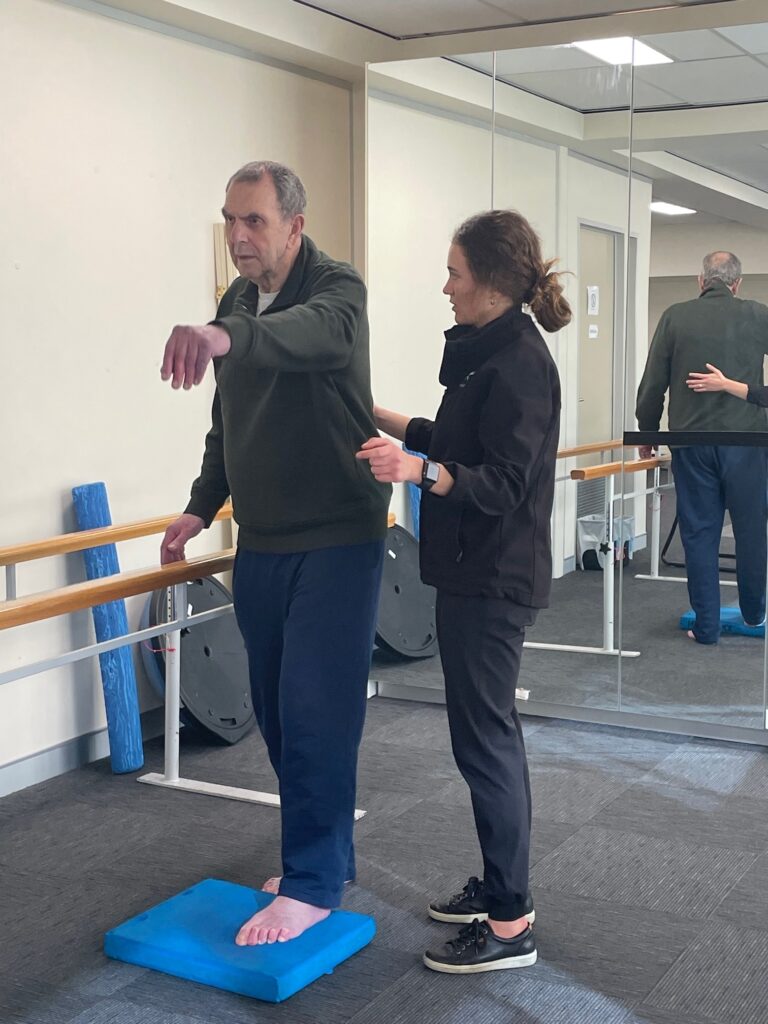

The movement changes from injury to the brain or spinal cord at birth are with a person for life and these are usually well managed through childhood. However in late teens the services and the interest in therapy can drop off, and we at Neurospace are here ready to help when you are ready to make some changes.
Cerebral Palsy will result in the musculoskeletal and cardiovascular systems developing differently from a ‘normal’ person and the management needs to be different to a person who has acquired neurological injury later in life. As an adult you are now able to use some movement retraining to reduce the spasms and make the choices you want to in exercise.
Like all neurological conditions – finding what you enjoy and feel empowered to do is what we want to partner with you on – and we offer one to one work, training in the NeuroStudio, progressions in the home program and hydrotherapy (aquatic therapy).
Spinal Cord Injury is any damage to the spinal cord from traumatic injury or disease. This results in diverse movement changes, from minor alterations in walking to total loss of arm and leg control and confinement to a wheelchair.
Neurospace can assist your journey beyond the initial hospital rehabilitation and welcome the opportunity to support this.
Our comprehensive assessment establishes your current abilities and goals. Therapy will work to maximise available muscle power, and improve movement control with a focus on central stability either in sitting or standing, to enhance all functional movements with the arms or legs. Substitution methods with equipment and alternative ways of moving are developed with you if needed.
Our programs are supported with equipment that can be used from a wheelchair, or with minimalised transfer requirements. We even have a treadmill and harness for partial weight bearing. The benefits of hydrotherapy are also enjoyed by our clients with Spinal Cord Injury.
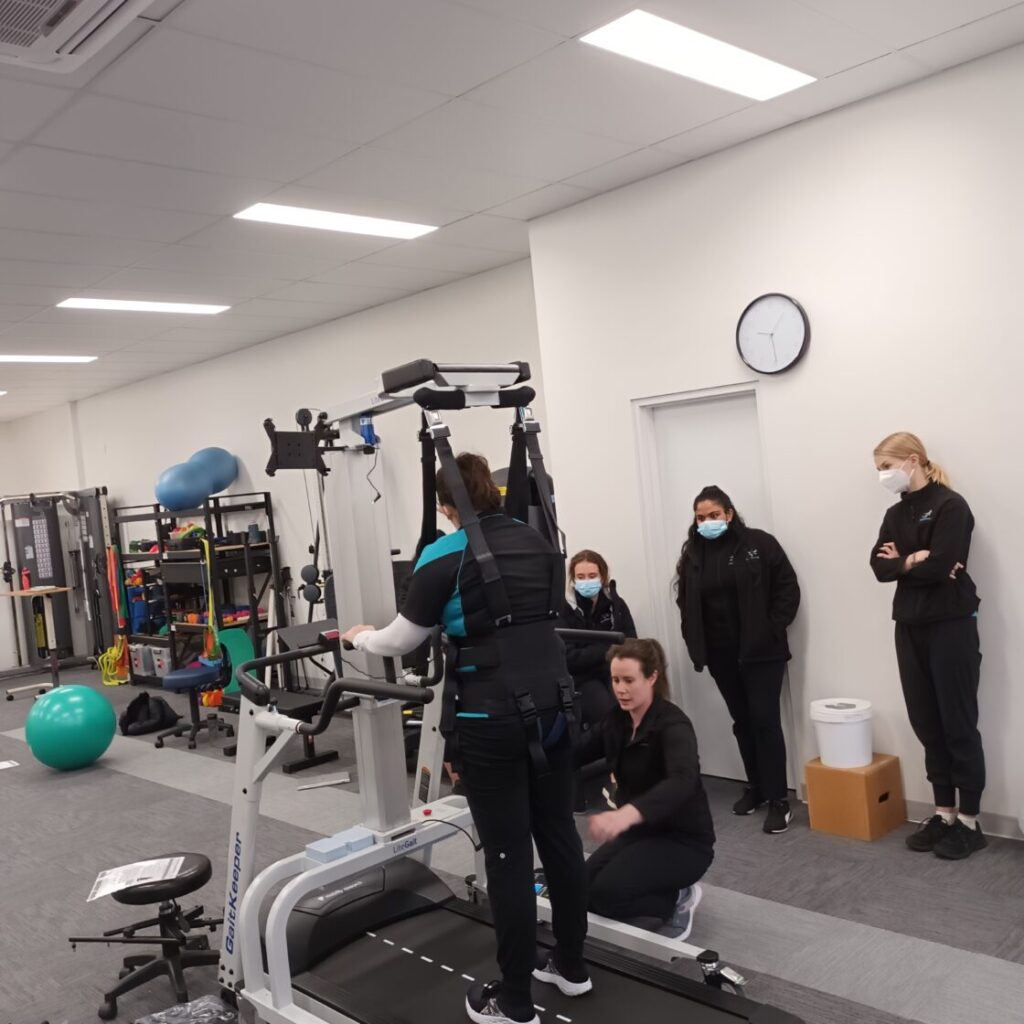
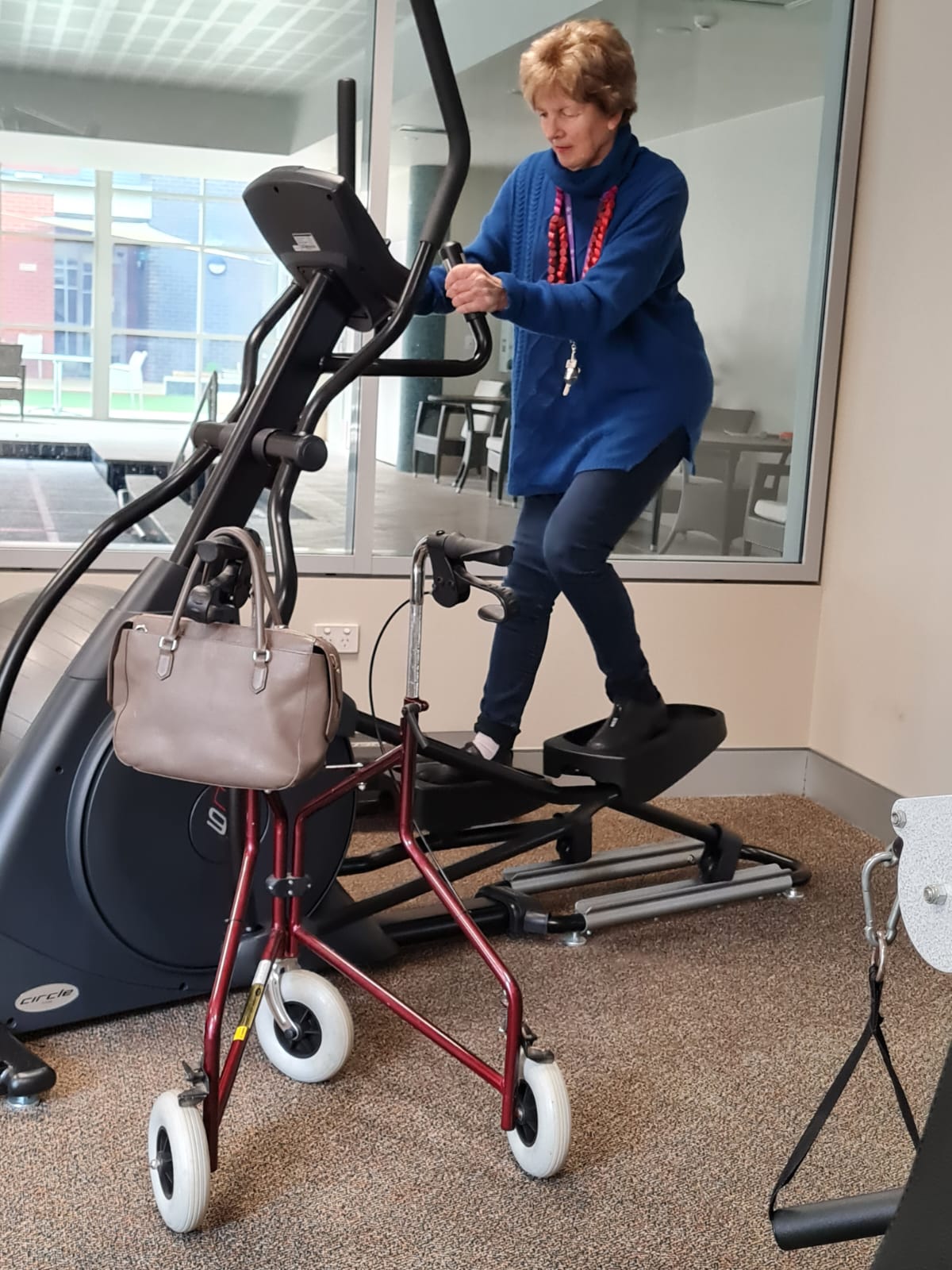
Functional Neurone Disease is where an alteration in voluntary movement control or normal sensation that cannot be explained by any medical diagnosis can have huge social implications. FND can be incredibly frustrating for the person with the disorder and their support people.
Physiotherapy and exercise play an important role in the management, and reversal of the symptoms. Our approach is to understand you, your personal situation and your goals. We assess any old issues that may be compounding your movement difficulties, your current abilities, and your overall neurological presentation.
In treatment, we seek to find ways to move and exercise that you can achieve comfortably with control and build up from there. We have found this is a difficult journey for you to make alone and considerable support is needed to make change. We are happy to liaise with your team of health professionals.
Dystonia refers to a movement disorder in which a person’s muscles contract uncontrollably. Symptoms of dystonia can range from very mild to severe. Dystonia can affect different body parts and will appear as abnormal repetitive movements or postures. For the person, this can cause incredible pain and fatigue.
The most common dystonia movements we manage at Neurospace are:-
We look to see what factors might be exacerbating the dystonia including where stress is place on body due to weakness or joint dysfunction (note these are also caused by the dystonia, so trying to find the start of the cycle and control it).
Dystonia is difficult to treat. Our strategy is to treat the underlying impairments (reduced strength, balance, range of motion etc) and to build up normal movement patterns. Treatment is aimed at getting a good base, and then reducing the dystonic movements and reducing the secondary effects of the abnormal movement. This needs to be graded slowly and within your capabilities, without the triggers.
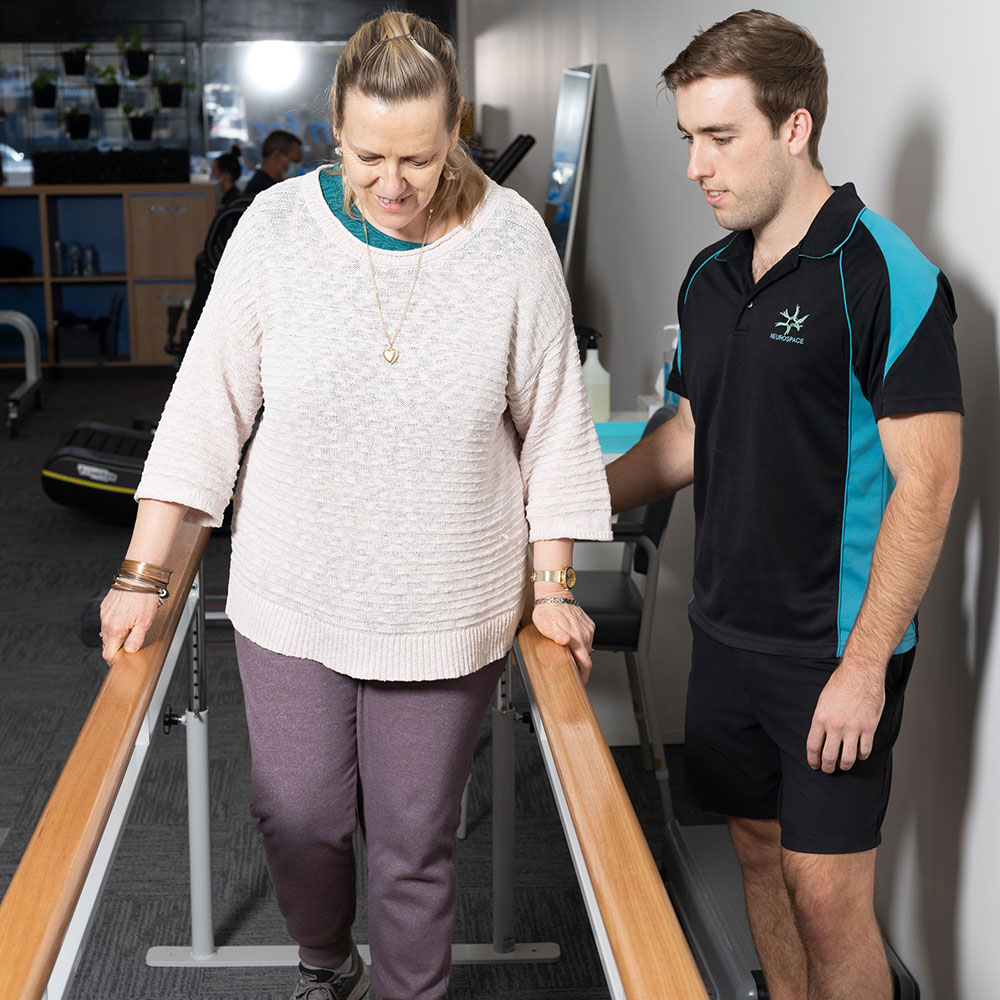


Our Neurospace training and experience in assessing and treating clients holistically gives us a good basis for the treatment and management of people living with complex presentations. This may include someone living with multiple diagnoses, or someone with multiple ongoing issues after a significant accident. For example, someone living with a TBI but also having sustained multiple areas of trauma on top of the head injury or had multiple co-morbidities prior to their accident.
Our team is experienced and confident in managing complex clients safely and effectively to exercise and reach their goals.
Neurospace Clinic: 8-5 Mon, Wed, Fri 8-6 Tue, Thu
NeuroStudio: 8-5 Mon 8-5:30 Tue, Wed, Thu 7:30-4:30 Fri
Yes we provide services for people with an insurance claim for their injury. We are often chosen to help solve complex or long standing cases. To be eligible to claim on your insurance, we require the following:
We need to get preapproval for the initial assessment before the first consultation and defined number of sessions.
Please note that all claims are subject to approval by the insurance company. If the insurer or Comcare does not agree to Neurospace’s full fees then you are required to pay the gap and seek direct reimbursement from the insurer. For example, the insurance company may only pay for a 20 minute consult when Neurospace treats standardly for a minimum of 30 minutes.
Neurospace is a registered provider with the National Disability Insurance Scheme, the NDIS. We offer services in Physiotherapy, Exercise Physiology and allied health assistant.
If you have a plan already in place, please call to discuss how Neurospace can work with you to reach your goals. If you are still in the planning stages, we can also discuss what services are available in the community that may be of benefit to you.
As a registered provider, we can bill directly to the NDIS for your services or you can chose to self-manage your plan or have someone manage your plan for you. We also work closely with other providers to provide you with the best care.
We offer services as home visits, community visits ( somewhere not your home) and at the pool. There is an additional charge for these due to the extra time required to travel to a home or care facility. Please contact us to discuss external visits in greater detail.
We offer telehealth using a range of ‘video’ communications to assess and manage you online. Our telehealth charges are the same as if you were in the rooms.
Physiotherapists and Exercise Physiologists work together, complementing each other’s work. Everyone can benefit from a physiotherapy or exercise physiology session of a comprehensive movement / fitness check up. Often we are not aware that something is changing in our bodies until pain and reduced function scream out at us to get in checked. You do not need a doctors referral to seek an answer from us, and if you need a doctor we will refer you on with a detailed letter.
The physiotherapy and exercise physiology we offer at Neurospace is particularly targeted at long standing and difficult problems. We place emphasis on clients gaining quality of life and meaning from our therapy. See our Fit to Retire package to get a start on making a difference in your quality of life.
Neurospace has a special interest in helping people with movement problems due to damage to the nervous and/or sensory systems. Our approach has been developed by a lifetime of work by our principal therapist Deborah Carrera and there is systematic training approach to ensure all the team understand this. We apply a holistic approach that seek to assess the underlying impairments and understand how these impact the way you move. We develop and progress the treatment plan addressing both the impairments and retraining the way you move.
In addition, we apply this holistic approach to issues such as joint pain, sporting injuries , and post surgery rehabilitation. We like to think we can help anyone, but if we don’t think we are the right place for you , we let you know and refer you onto a place that can help you.
Principal physio with 38 years rehabilitation experience
Our Home Visits and telehealth options make treatment more convenient
Purpose-build rehab studio with specialised equipment
As a long standing NDIS registered provider, we take the confusion out of claiming and help you maximise your benefits*
Free parking and easy accessibility
Excellent professional staff and service, very friendly and supportive. Highly recommend.
Jackie Neill
I have been going to Neurospace Physiotherapy for the last two weeks and I am so happy with the service that they have been able to provide to me. The staff are incredibly welcoming and helpful and they have been able to help me immensely. I highly recommend this service!
Ally Gould
Best physio to go to, the staff are helpful and caring.
Sammy Rose




